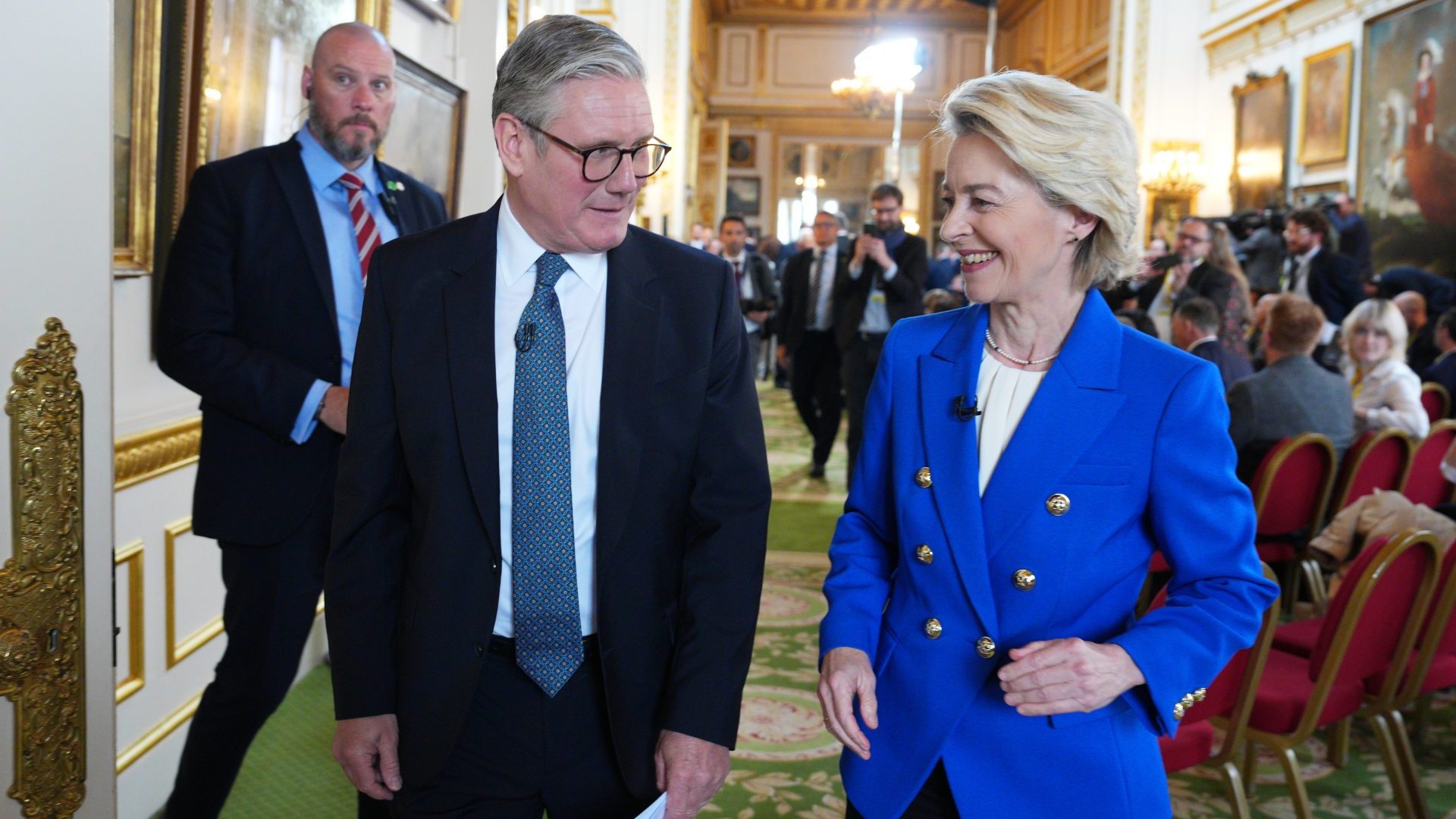Almost nine years after the UK narrowly voted to leave the EU, a strange political reality has emerged – and it is that Remainers are the only politicians taking Brexit seriously.
With his long-trailed Brexit ‘reset’ on Monday, Keir Starmer sought to settle a long-term trading relationship with, but outside of, the European Union, which wouldn’t need revisiting on a near-constant basis.
For the sake of saving what remains of British exports, especially in food and drink, that meant coming to a long-term agreement on food safety checks at the border – which were not only leading to long queues, but also making exports near impossible for fresh meat and fish (the difficulties of exporting fishing catches have, funnily enough, been missing from Brexiteers’ fish discourse).
The UK similarly needed some certainty on accessing the EU’s energy market, and working out in future how the UK could interconnect with it in turn – for the short-term, so the UK has certainty on how it can import electricity when we need it, but with the longer-term ambition of exporting energy when we have enough green generation in place.
Inexplicably, energy cooperation – which is essential to the UK’s future economic growth – has attracted barely a tenth of the column inches as has fishing, an industry which employs fewer full-time fishers than there are tattooists in the UK, but any long-term EU deal needed to explore these questions.
Similarly, Starmer has at least laid the groundwork for defence and security cooperation, including exports of British defence products to the EU as it rearms, alongside youth mobility (which polls extraordinarily well, even among Brexiteers) and other issues.
None of this is on terms that are as good as, let alone better than, the deal that the UK got as part of the EU – but a liveable deal has been reached that allows the UK to focus on other things and normalise relationships with our 27 nearest neighbours.
Brexit can never be said to ‘work’, as even with this deal the UK economy will grow much more slowly than if we had not left, but Starmer and Labour have at least made the effort to make Brexit workable, to make it something the country can live with – and have given businesses certainty as to what the rules will be, if only for the next few rules, as the Tories and Reform have pledged to reverse them.
In theory, this should have Remainers furiously up in arms – it is the kind of plodding compromise deal that makes reversing Brexit less likely, because settled new arrangements have been made. Brexiteers should be celebrating it, given they have had almost a decade to come up with something better, and have consistently failed. Had Rishi Sunak, a Brexiteer, somehow won last year’s election, his deal would likely have looked almost identical to this one.
Instead, inevitably, Brexiteers didn’t even wait for the deal to be signed before they screamed betrayal. They did much the same when the government came to a trade agreement with the US last week and completed a deal with India – exactly the kind of Brexit freedom they supposedly campaigned for. The Brexit movement has become less a political ideology as a toddler’s tantrum: they have no idea what they want, knowing only that it’s not this.
Remainers, despite accusations to the contrary, have generally been much more willing to compromise with reality than the Brexit diehards – most have accepted that a formal movement to rejoin the EU is likely decades away, and the best that can be hoped for was normalising trade relations and trying to get back to working constructively with the world’s largest trading bloc. Many sensible people who voted Leave and came to regret it feel much the same.
This is a particularly Starmerish deal. It is pragmatic, it has been got through dint of sustained hard work, and it is something almost no-one could truly love. It’s the stuff of compromise, politics as the art of the possible – the German sociolgist Max Weber’s “slow boring of hard boards” in action.
It is a mark of how flat-footed No 10 is politically that the Starmer of this week, heralding his new deal on the world stage and its role in letting Britain play its part internationally sounds like an entirely different PM to the one who spent last week engaging in relentless anti-immigration rhetoric.
The groundwork was not laid, the messaging wasn’t there, and there is probably no political win to be had here – Labour would have to be very optimistic to expect a poll bounce as a result of the UK-EU deal. It does, though, play to Starmer’s strengths – adding to his credibility as someone who can get things done on the world stage.
What needs to happen next is that the questions about Brexit and deals with Europe should flip. UK farmers and fishers can export now. Soon, young people should be able to live and work in Europe again. Erasmus is back on the cards. There is some certainty, which might even let businesses invest in the UK again.
If Nigel Farage or Kemi Badenoch want the UK to go through the painful process of reopening all of this again, they should be forced to explain why – it is no longer enough to say “not this”. Renegotiating all of this will cost time and money. They should explain what they would change, and how, or else be ignored.
Farage will surely think he can capitalise on calling this deal, like everything before it, yet another Brexit betrayal. But played right, this deal could contain the seeds of his eventual downfall.











